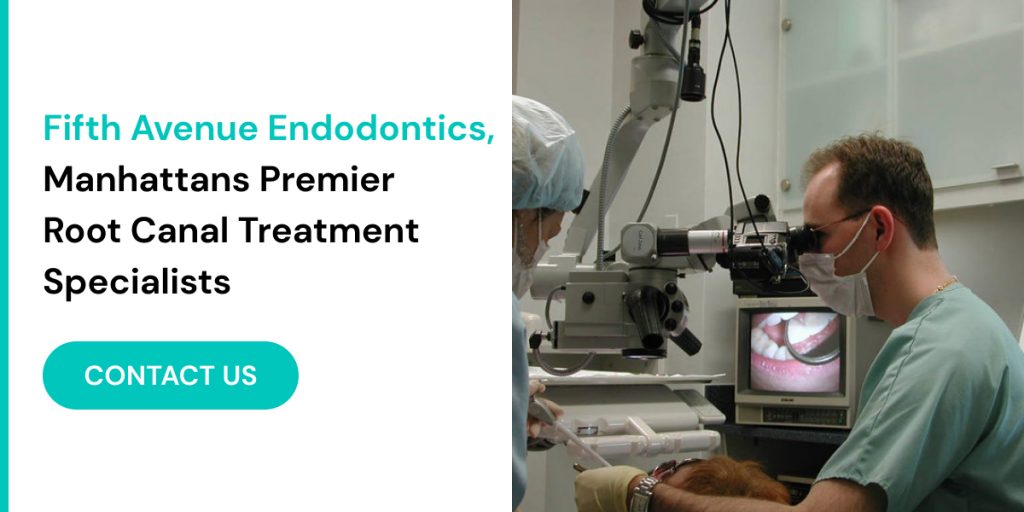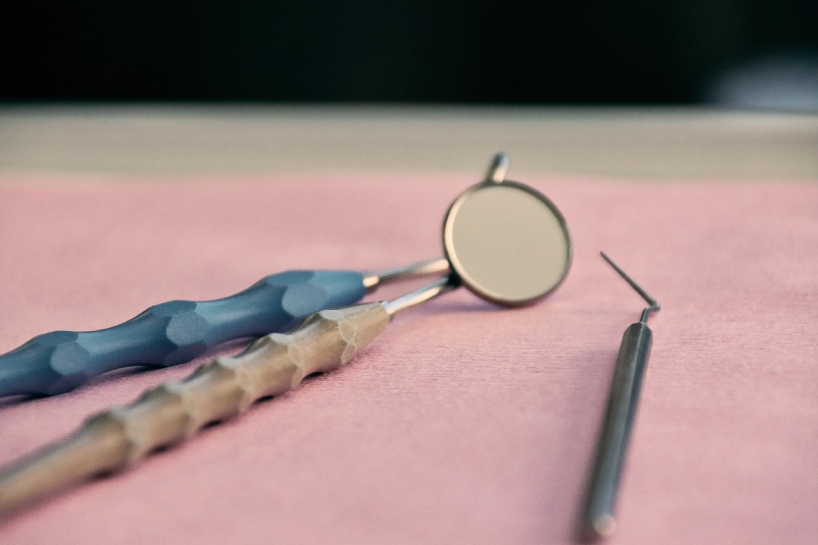Endodontic therapy, commonly known as root canal treatment, is a crucial dental procedure aimed at saving teeth that are severely decayed or infected. The procedure involves removing the infected or damaged pulp, cleaning and disinfecting the tooth’s interior, and then filling and sealing it to prevent further infection. While this treatment is highly effective in preserving natural teeth and alleviating pain, it requires meticulous planning and execution, especially for patients with allergies or sensitivities to dental materials and medications.
Patients with allergies or sensitivities face unique challenges during endodontic therapy. Common allergens in dental settings include local anesthetics, antibiotics, latex, and various dental materials such as nickel or acrylic. These allergens can cause reactions ranging from mild irritation to severe, potentially life-threatening conditions like anaphylaxis. Therefore, it is essential for endodontists to take special precautions and employ tailored strategies to ensure the safety and comfort of these patients.
In this post, we will delve into how specialists in New York endodontic therapy, particularly at Fifth Avenue Endodontics under the expert care of Dr. Iofin, manage these challenges. By utilizing comprehensive patient assessments, alternative materials and medications, and a collaborative approach, they provide safe and effective care for patients with allergies and sensitivities. This ensures that all patients can benefit from the life-saving potential of root canal treatment without compromising their health and well-being.
Understanding Allergies and Sensitivities in Dental Care
Dental allergies and sensitivities can stem from various sources, including local anesthetics, antibiotics, latex, and dental materials such as nickel or acrylic. These reactions can range from mild discomfort to severe, life-threatening conditions such as anaphylaxis. Therefore, it is paramount for endodontists to take a detailed medical history and conduct thorough assessments before proceeding with any treatment.
Identifying Allergies and Sensitivities
The first step in managing allergies and sensitivities in endodontic therapy is proper identification. At Fifth Avenue Endodontics, Dr. Iofin and his team begin by meticulously reviewing the patient’s medical history. This includes asking detailed questions about any known allergies, previous allergic reactions to medications or dental materials, and any other relevant health conditions. Identifying these issues early on helps in formulating a treatment plan that avoids potential allergens, thereby ensuring the patient’s safety and comfort throughout the procedure.
Comprehensive Medical History Review
A comprehensive medical history is vital. Patients are encouraged to disclose all known allergies and past reactions. This information helps the endodontist determine which materials and medications should be avoided. For instance, if a patient has a known allergy to penicillin, an alternative antibiotic will be selected. Additionally, patients are asked about their family history of allergies, as this can also provide clues about potential sensitivities.
During the initial consultation, the team at Fifth Avenue Endodontics spends considerable time discussing the patient’s previous dental experiences. They ask about any discomfort or adverse reactions that occurred during past treatments, which can help identify specific triggers. This thorough approach ensures that no detail is overlooked and that the patient’s health history is fully understood.

Allergy Testing and Consultation
In cases where allergies are suspected but not confirmed, allergy testing may be recommended. Collaboration with an allergist can provide clarity on the specific allergens and guide the selection of safe alternatives. This multidisciplinary approach ensures that the patient receives the most appropriate and safe care.
Allergy testing typically involves skin tests or blood tests to identify specific sensitivities. For instance, if a patient reports a reaction to a local anesthetic, an allergist might perform tests to pinpoint which component caused the reaction. This detailed information allows Dr. Iofin and his team to choose the safest anesthetic for the procedure.
In some cases, a challenge test might be performed under controlled conditions. This involves exposing the patient to a small amount of the suspected allergen in a medical setting where emergency care is readily available. While this can be stressful for the patient, it provides definitive answers and helps in planning a safe treatment protocol.
The Importance of Communication and Collaboration
Effective communication between the patient, endodontist, and allergist is crucial. Patients should feel comfortable discussing their concerns and symptoms, knowing that their medical team is attentive and responsive. At Fifth Avenue Endodontics, Dr. Iofin emphasizes the importance of listening to the patient’s experiences and concerns. This open line of communication helps build trust and ensures that the patient feels supported throughout their treatment.
Collaboration with other healthcare professionals, such as the patient’s primary care physician, is also important. These professionals can provide additional insights into the patient’s health history and any underlying conditions that might affect their dental care. By working together, the healthcare team can develop a comprehensive and individualized treatment plan that prioritizes the patient’s safety and well-being.
Patient Education and Empowerment
Educating patients about their allergies and sensitivities is another key aspect of managing their care. Dr. Iofin and his team take the time to explain the potential risks associated with different dental materials and medications. They discuss alternative options and the reasons behind their recommendations, ensuring that patients are fully informed about their treatment choices.
Empowering patients with knowledge helps them feel more in control of their healthcare decisions. When patients understand the rationale behind their treatment plan, they are more likely to adhere to it and communicate any concerns promptly. This proactive approach can prevent complications and enhance the overall treatment experience.
In conclusion, understanding and managing allergies and sensitivities in endodontic therapy requires a meticulous and patient-centered approach. At Fifth Avenue Endodontics, Dr. Iofin and his team prioritize thorough assessments, effective communication, and multidisciplinary collaboration to ensure the safety and comfort of their patients. By taking these steps, they can provide high-quality care tailored to the unique needs of each individual.
Modifying Treatment Plans for Allergic Patients
Once allergies and sensitivities are identified, the treatment plan can be modified accordingly. This involves selecting alternative materials and medications, as well as implementing special precautions during the procedure to ensure the patient’s safety and comfort.
Alternative Anesthetics and Medications
Local anesthetics are commonly used in endodontic therapy to numb the treatment area and prevent pain. However, patients with allergies to specific anesthetics require alternatives. For instance, if a patient is allergic to lidocaine, other anesthetic options such as mepivacaine or articaine can be considered. These alternatives provide effective pain management without triggering allergic reactions.
In addition to local anesthetics, antibiotics are often prescribed to prevent or treat infections. For patients with antibiotic allergies, such as those allergic to penicillin or amoxicillin, alternative antibiotics like clindamycin or azithromycin are used. These substitutes are chosen based on their effectiveness and the patient’s allergy profile, ensuring that the treatment is both safe and effective.
Pain management is another critical area where modifications may be necessary. Patients with sensitivities to non-steroidal anti-inflammatory drugs (NSAIDs) like ibuprofen may be prescribed acetaminophen instead. For those with multiple drug allergies, a customized pain management plan that includes non-pharmacological methods, such as ice packs or relaxation techniques, might be developed.
Latex-Free Environment
Latex allergies are relatively common and can cause severe reactions, including anaphylaxis. To accommodate patients with latex allergies, Fifth Avenue Endodontics ensures a latex-free environment. This commitment to patient safety involves using non-latex gloves, rubber dams, and other dental materials. By eliminating latex from the treatment environment, the risk of allergic reactions is significantly reduced.
Use of Biocompatible Materials
For patients with sensitivities to dental materials, the use of biocompatible alternatives is essential. Nickel allergies, for example, require the use of nickel-free instruments and materials. Fifth Avenue Endodontics offers nickel-free stainless steel instruments and crowns, which are safe for patients with this allergy.
Similarly, for patients sensitive to acrylic, alternative materials such as porcelain or zirconia are used for crowns and other dental restorations. These materials are not only biocompatible but also provide excellent durability and aesthetic results, ensuring that patients receive high-quality care without compromising their health.
Pre-Treatment Precautions
Before beginning the procedure, special precautions are implemented to minimize the risk of allergic reactions. This may include premedication with antihistamines or corticosteroids, especially for patients with a history of severe allergies. Premedication helps to mitigate the body’s response to potential allergens and provides an added layer of protection during the procedure.

Tailored Post-Treatment Care
Post-treatment care is equally important for patients with allergies and sensitivities. Detailed post-treatment instructions are provided, highlighting any signs of delayed allergic reactions and steps to take if they occur. Patients are advised to contact the clinic immediately if they experience any unusual symptoms, ensuring prompt management and care.
Patient Education and Empowerment
Educating patients about their allergies and sensitivities, as well as the modifications made to their treatment plans, is crucial. At Fifth Avenue Endodontics, Dr. Iofin and his team take the time to explain the reasons behind selecting specific materials and medications. This empowers patients with knowledge, helping them feel more in control of their healthcare decisions and enhancing their overall treatment experience.
By carefully modifying treatment plans to accommodate allergies and sensitivities, specialists in New York endodontic therapy, such as those at Fifth Avenue Endodontics, provide safe and effective care tailored to each patient’s unique needs. This comprehensive approach ensures that all patients can undergo endodontic therapy with confidence and peace of mind.
Utilizing Biocompatible Materials
For patients with sensitivities to certain dental materials, biocompatible alternatives are essential. Nickel allergies, for instance, necessitate the use of nickel-free instruments and materials. Similarly, for patients sensitive to acrylic, alternative materials like porcelain or zirconia are preferred.
Nickel-Free and Acrylic-Free Options
Nickel-free stainless steel instruments and crowns are commonly used for patients with nickel allergies. Zirconia crowns offer a metal-free alternative for those with sensitivities to various metals. These biocompatible materials minimize the risk of allergic reactions and ensure the patient’s comfort and safety.
Special Considerations for Medication Sensitivities
In addition to local anesthetics, various medications are used in endodontic therapy, including antibiotics, analgesics, and anti-inflammatory drugs. Patients with known sensitivities require careful selection of these medications to prevent adverse reactions.
Customized Medication Protocols
At Fifth Avenue Endodontics, Dr. Iofin tailors medication protocols to each patient’s needs. For patients with non-steroidal anti-inflammatory drug (NSAID) allergies, acetaminophen may be recommended for pain management. Additionally, patients with multiple drug allergies may benefit from a premedication regimen with antihistamines or corticosteroids to mitigate the risk of reactions.
Pre-Treatment and Post-Treatment Precautions
Special precautions are necessary both before and after endodontic therapy for allergic patients. Pre-treatment protocols may include premedication or prophylactic measures, while post-treatment care focuses on monitoring and managing any delayed reactions.
Premedication Strategies
Premedication with antihistamines or corticosteroids can help prevent allergic reactions during the procedure. This is particularly important for patients with a history of severe allergies or multiple sensitivities. The endodontist will provide specific instructions on when and how to take these medications.
Post-Treatment Monitoring
After the procedure, patients are closely monitored for any signs of delayed allergic reactions. They are also provided with detailed post-treatment care instructions and advised on symptoms to watch for. In case of any adverse reactions, patients are encouraged to contact the clinic immediately for prompt management.
Collaborative Care Approach
Managing allergies and sensitivities in endodontic therapy often requires a collaborative approach. This involves working closely with other healthcare providers, such as allergists and primary care physicians, to ensure comprehensive care for the patient.
Interdisciplinary Collaboration
By collaborating with allergists, Dr. Iofin can obtain detailed information about the patient’s allergies and sensitivities, which aids in planning a safe and effective treatment. Primary care physicians also play a crucial role in providing medical history and supporting the patient’s overall health.

Conclusion: Ensuring Safe and Effective Endodontic Therapy
Addressing allergies and sensitivities in endodontic therapy is crucial for ensuring patient safety and comfort. At Fifth Avenue Endodontics, Dr. Iofin and his team are committed to providing personalized care that considers each patient’s unique needs. By identifying allergies, utilizing biocompatible materials, and implementing customized treatment plans, they ensure that every patient receives safe and effective care.
New York endodontic therapy stands out for its attention to detail and patient-centric approach, making it a reliable choice for those with dental material and medication sensitivities. If you have concerns about allergies or sensitivities, consult with an experienced endodontist like Dr. Iofin to ensure your treatment plan is tailored to your specific needs. At Fifth Avenue Endodontics, your safety and comfort are the top priorities.

